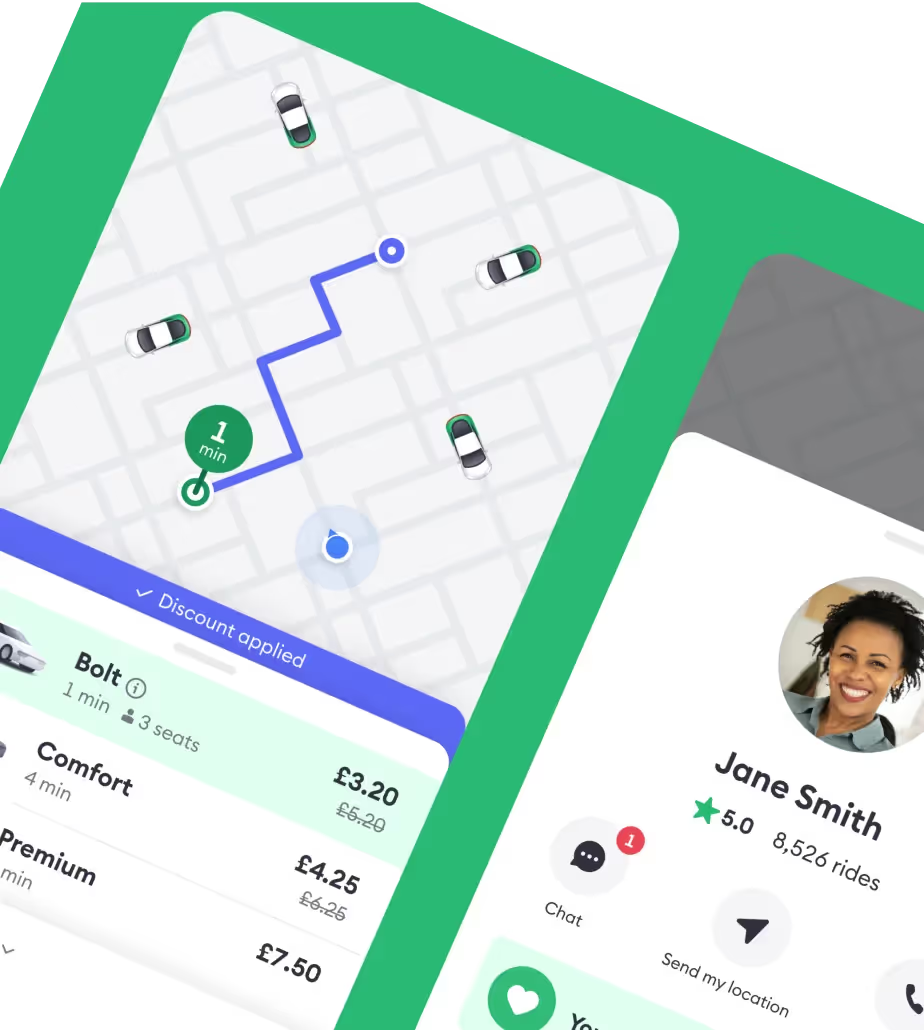Hire Solution Architects from the top 7% dev shops.
Pangea.ai is the easiest way to find the world’s best tech talent — in 72hrs or less.
Start Hiring
.avif)
A talent community trusted by






Meet Solution Architects from top dev shops
Access 1,000+ rigorously evaluated Solution Architects

Senior Developer

Junior Developer

Junior Developer

Security Specialist

Test Engineer

Junior Developer

Junior Developer

Test Engineer

Frontend Developer

Frontend Developer

Security Specialist

Test Engineer
Power your innovation with Technical Architecture expertise
Our network of Solution Architects provides comprehensive development services, covering the entire app development lifecycle to optimize costs, boost profitability, and enhance efficiency.
Enterprise Architecture Planning defines the structure and strategy for your IT systems. We provide comprehensive planning services to align your technology infrastructure with business goals, ensuring scalability, security, and efficiency in your enterprise architecture.
Technology Roadmap Development outlines the strategic plan for your technology initiatives. We help you define short-term and long-term technology goals, identify necessary resources, and plan for future developments to ensure your business stays ahead in the digital landscape.
IT Strategy Consulting provides expert advice on aligning your IT initiatives with business objectives. We offer strategic planning, technology assessments, and roadmapping services to help you optimize your IT investments and drive digital transformation.
Cloud Solution Architecture designs scalable and resilient cloud infrastructures. We provide architectural planning and implementation services for cloud solutions using platforms like AWS, Azure, and Google Cloud, ensuring optimal performance and cost efficiency.
Software Architecture Design defines the structure and design principles for your software applications. We provide architectural consulting and design services, ensuring your software is scalable, maintainable, and aligned with your business requirements.
Integration Architecture designs the framework for connecting your systems and applications. We provide solutions for seamless data flow and interoperability using APIs, middleware, and integration platforms, ensuring efficient and reliable communication across your IT environment.
Case studies from our vetted Technical Architecture service providers
Hundreds of the world's leading enterprises and startups partner with Pangea.ai agencies to do more with less.
.avif)
Promising better scooter mobility for Bolt's logistics team


Delivering UX/UI delight to HelloFresh, America's #1 meal kit

.png)
Building the first-ever mobile app experience for Wise
%20(1).avif)
Why Pangea.ai?
Pangea.ai is the first development agency marketplace — connecting leading agencies with leading startups and enterprises. The platform offers product leaders expedited hiring, superior talent quality, minimized risk, and hyper-curation tailored for specific challenges.
Pangea.ai
Gig Platforms
Offshore Outsourcing
In-house FTE

How we select the top Solution Architects
We use 500+ data points to evaluate our service providers.
Looking for another skill?
Hundreds of enterprises & SMBs trust Pangea.ai
Leading startups and enterprises worldwide trust Pangea.ai with their most important product initiatives.
Frequently asked questions
Here are some of the most common questions we get, all ready for you.
How can businesses get in touch with the Pangea.ai team?
Anyone can get in touch with us through the "Contact Us" section on our website by emailing us at [email protected]. Our team is always ready to assist with any questions or concerns.
How is Pangea.ai compensated?
We operate on a success fee model. This means we only earn a percentage from the total project cost that the client and the agency agree upon. There are no hidden costs or additional fees - transparency is key for us.
Who is Pangea.ai not suited for?
Pangea.ai may not be the best fit for businesses, regardless of their size, seeking to procure software development services that adhere to a more localized, centralized, and onsite workforce model. If your preference leans towards traditional HR firms with account executives and constant interaction or agencies who cover every engagement model, tech stack, and domain, our platform may not align with your needs. Similarly, if you view agencies solely as an opportunity for cost arbitrage or tend to select agencies based on a certain bias, Pangea.ai, with its focus on global, merit-based partnerships and specialized talent, might not cater to your preferences.
Who is Pangea.ai best suited for?
Pangea.ai is the go-to platform for businesses of all sizes that aim to harness the benefits of software development services in a global, remote, and distributed workforce. Emphasizing a self-serve marketplace model, we enable you to unlock world-class talent with a few clicks, focusing on boutique, specialized agencies who can bring unique value to your projects. We encourage a partnership mindset, where agencies are seen as equals to your in-house teams, fostering long-term collaborations. We believe in the immense potential of agencies markets for talent arbitrage and stand firm on selecting agencies based on their merit. So, if you're in pursuit of a tech team to build your entire product from scratch or ramp up your hiring with a couple of additional engineers, Pangea.ai is the ideal platform for you.
Why should businesses choose Pangea.ai?
As your reliable partner, Pangea.ai offers a unique method of finding top-notch tech agencies for your needs. We eliminate the guesswork in agency selection by combining AI with expert human analysis to match your project's unique requirements with the right tech partners.
How does Pangea.ai evaluate the Client Experience of an agency?
At Pangea.ai, we evaluate the Client Experience of a agency through a tailored survey dispatched to at least five active clients from the past six months. This survey gauges performance across eight critical aspects: Customer Journey, UI/UX Design, Project Management, Technical Expertise, Quality Assurance, Documentation Level, Business Maturity, and Process Maturity. Each of these segments gets a score, the collective average of which provides the overall Client Score. This evaluation is performed twice annually to ensure up-to-date, accurate representation of the agencies’ performance.
How does Pangea.ai compute the Team Health Score?
The Team Health Score at Pangea.ai is computed using a proprietary algorithm that aggregates and processes the inputs received from our Team Vibe survey. This score reflects the average of the scores obtained in eight crucial segments: Satisfaction, Personal Growth, Peers Rapport, Management Rapport, Culture, Well-being, Feedback & Recognition, and Advocacy. These segments scores are based on employee input and sentiment, offering an insight-driven metric that genuinely reflects the health of an agency.
How does Pangea.ai evaluate Team Health of an agency?
Pangea.ai evaluates the Team Health of an agency using our proprietary product, Team Vibe. This is a survey distributed to each team member of an agency organization, measuring sentiment across eight key segments: Satisfaction, Personal Growth, Peers Rapport, Management Rapport, Culture, Well-being, Feedback & Recognition, and Advocacy. Each segment receives a score which then contributes to an overall Team Health score. A minimum participation rate of 75% is expected from the agency organization; however, our current average participation rate is 83.2%. For continuous and updated evaluations, Team Vibe is administered twice a year to each agency.
What does the onboarding process to Pangea.ai look like?
Onboarding at Pangea.ai follows a three-step process designed to ensure our platform hosts only the best agencies. First, prospective agencies complete a Team Vibe assessment, where they must attain a satisfactory Team Health score with a participation rate of 75% or higher. Second, agencies must provide a minimum of five client references, who then complete the Pangea Client Experience Survey and generate a satisfactory client score. The final step involves the agency completing their profile with data points that are verified through documentation by human experts within the Pangea.ai team. If the agencies' data meets or exceeds the average industry benchmark, they are welcomed to Pangea.ai. Agencies not meeting these benchmarks are given a period to improve before reconsideration.
How do I know that the agencies at Pangea.ai are trustworthy and reliable?
At Pangea.ai, we ensure that all our agencies are trustworthy and reliable through a comprehensive three-step onboarding process that spans over 4-6 weeks. This process involves rigorous verification of agencies' employee and client universes, alongside validation of key metrics and KPIs against industry benchmarks. Our stringent onboarding and listing fee aids in eliminating fraudulent agencies. Given its rigorous and time-consuming nature, this process selectively attracts agencies that align with Pangea.ai's vision and meet our stringent industry benchmarks. Furthermore, our agencies undergo regular evaluations to maintain up-to-date information, thereby discouraging unserious and unhealthy agencies who might not meet the stringent industry benchmarks. Hence, such agencies find it counterproductive to pay and spend time on onboarding while also having to adhere to ongoing evaluations.
.svg)
.avif)
.avif)


.svg)
.svg)
.svg)
.svg)
.svg)
.svg)
.svg)
.svg)
.svg)











.webp)